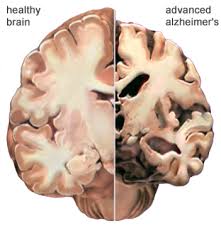
“We who are strong have an obligation to bear with the failings of the weak, and not to please ourselves.”
Galatians 6:2
“Gently encourage the stragglers, and reach out for the exhausted, pulling them to their feet. Be patient with each person, attentive to individual needs.”
1 Thessalonians 5:14, Message
Proverbs tells us that giving good advice is as rare as gold or silver. I have met so many people who have an opinion about my problems, but few want to listen. And listening skills are what my counselors needs Job’s friends were the best counselors when they sat quietly in the ashes with him. They were sterling silver until… well, you know what happened next.
I want to unload my issues and be understood by someone.
Personally, I need someone who has been profoundly depressed and finally stumbled out into the light. It’s not that I don’t love certain believers, but they haven’t been “checked out” on this particular problem. It’s like flying a plane or operating heavy equipment. If you haven’t really suffered, then leave me alone–but, please, do pray for me.
I’ve discovered that good counsel invariably comes from a good person.
But it’s more than that– not everyone can do it. At one time I thought any mature Christian believer had a right to give guidance, but that really wasn’t the case. I also believe that every believer will receive a minimum of a ‘spiritual semester’ in counseling. God can use anyone He chooses, but He also uses those who He has given specific giftings to.
I read this somewhere, and it seems like it’s true. “Unless you have been lost in this particular section of hell– just shut up!” Now I don’t want to be rude, or ungrateful, but I really need someone who has visited ‘hell’ on occasion. And specifically down my particular corridor.
People who have been damaged by life will know what I mean when I say this.
My guess is that only 1 in 20 are equipped to counsel a fellow believer who is struggling with depression.

Often counselors are offering only a part of the needed wisdom. We really must accept this. The Holy Spirit seems to work that way. However I place a premium on the counsel of a few dear friends, even though I have hundreds of Christian relationships. I am a bit of a hermit, so it’s hard to find caliber people that I can trust. But God brings them.
I don’t diminish relationships, but I do know that certain people are not tested on certain problems. This may be simplistic, or a little harsh, but when I had my brain tumor, I did not want my car mechanic to fix me, I wanted a neurosurgeon.
Choose your rainy day people carefully. Build a connection. Mark them out before things get out of hand.
If you’re reading this, and you have a mental illness issue that’s starting to escalate, you need to reach out. Ask the Holy Spirit for His help in this. He is the Comforter and the Wonderful Counselor. He will direct you, and help you. That is what He does. That is His job, His occupation you might say.
“Rainy day people always seem to know when it’s time to call,
Rainy day people don’t talk, they just listen till they’ve heard it all.
Rainy day lovers don’t lie when they tell ‘ya they’ve been down like you.
Rainy day people don’t mind if you’re crying a tear or two.”
— Gordon Lightfoot, 1975

My newest can be found at alaskabibleteacher.com.
&







